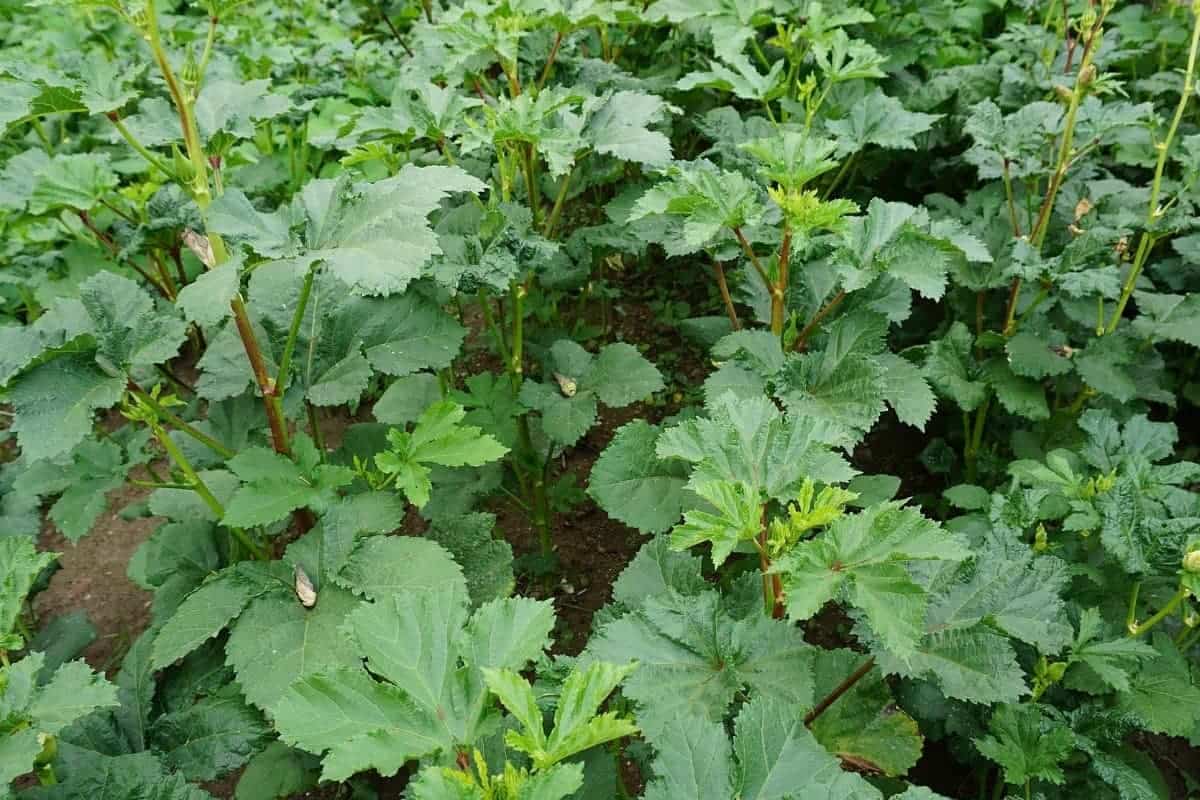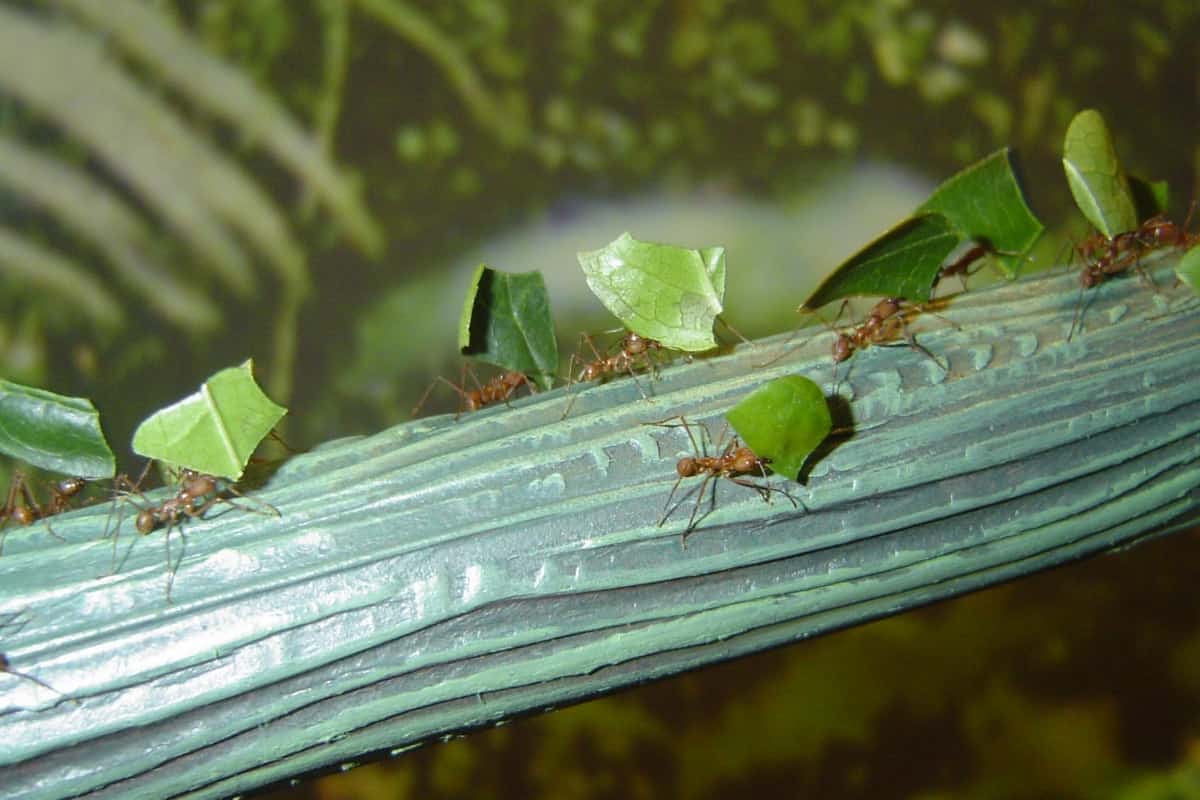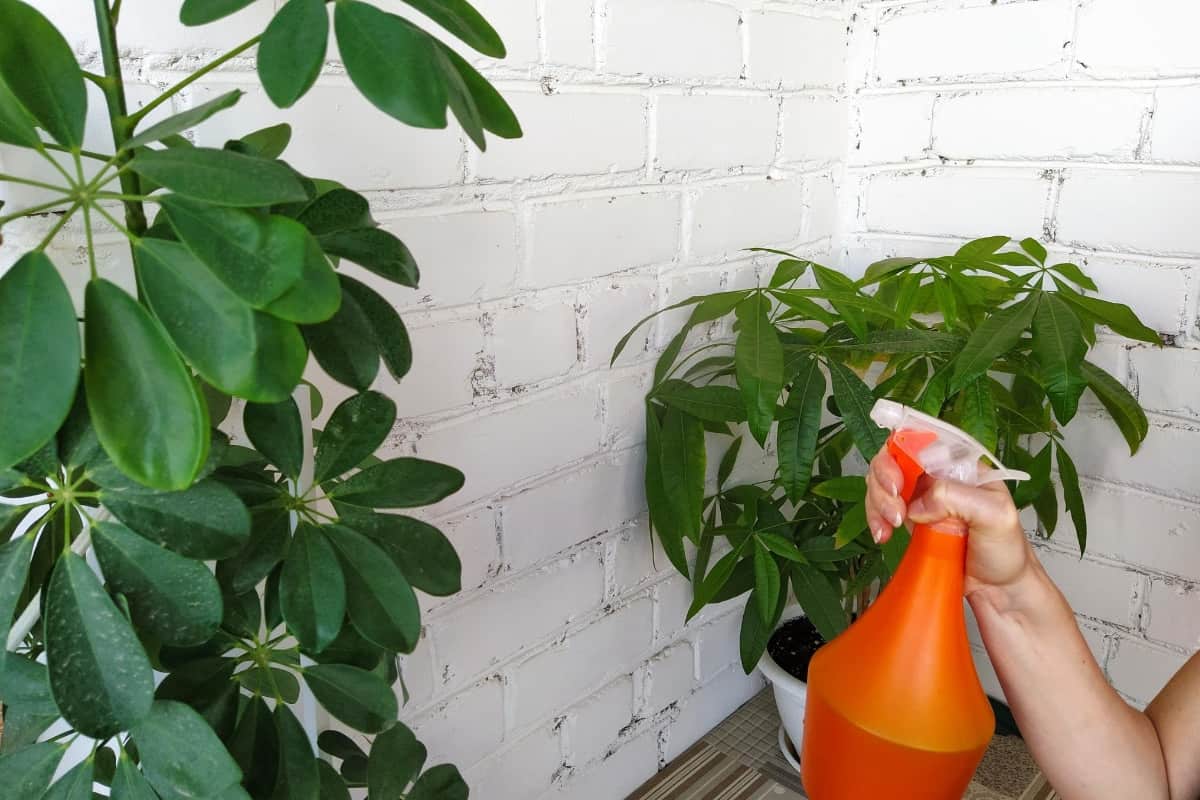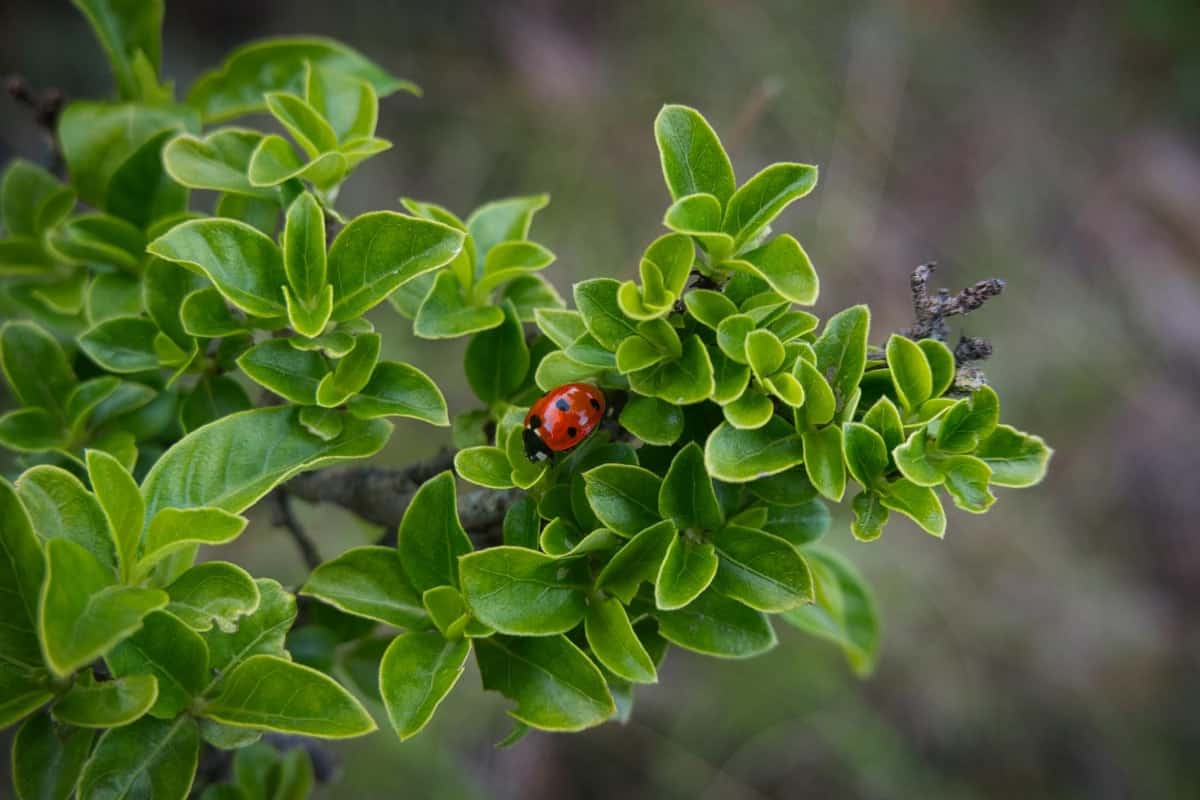Usually, you shouldn’t worry about ants on okra plants. Aphids on okra are one of the biggest reasons why ants are building their colonies near your plant.
Black ants are also called sugar ants, and for a good reason, since they crave sweetness.
Aphids excrete a sweet substance called honeydew and ants usually feed on this. Therefore, if you see ants on your okra plants, you will first have to deal with aphids to take care of the problem.
Some people have observed ants crawling on okra plants in the absence of aphids. If this happens, you might want to check if they have access to food sources that are near your okra plants.
While black ants are basically harmless, what you need to look out for are red fire ants.
These ants feed from okra flowers and greatly increase in number in a relatively short time. This is why you will need to take action as soon as possible when you notice them on your plants.
There are many methods to take care of ants on okra plants. You can deter them or kill them by using organic methods or chemical pesticides.
- Related article: Ants in Plant Soil
Allow us to help you keep them off your space by following our tips below.
Are Ants on Okra Plants a Problem?

As stated above, ants can sometimes be a problem for okra plants, depending on the species. Black ants are most certainly attracted to these plants when aphids are present. When these insects arrive, ants follow shortly after.
Ants take advantage of the waste produced by aphids on okra plants. Being opportunistic eaters, ants take the easiest route and eat the leftover sugar that aphids can’t digest in the form of honeydew.
They actually farm aphids that suck sap from okra and milk them to obtain more honeydew, so it’s normal to see great numbers of them on your plants. This can be a problem because it enables the aphid population to thrive, endangering okra plants.
Too many aphids can weaken the plant, stunt its growth, and cause the leaves to wither and yellow. More alarmingly, they can also carry diseases and if the honeydew accumulates on the leaves, a black mold can sometimes grow.
Despite this, red ants are the more serious problem for okra plants, as they feed from the base of okra bloom buds.
Will Ants Eat Okra Plants?

Red ants seem to be the only kind of ant that feeds from okra plants. In particular, they eat the blooms at their base. This causes the plant to stop producing, greatly reducing its yield.
Other people believe that black ants eat okra plants as well, but this has never been proven. When they swarm an okra plant, it’s most likely because there’s an aphid infestation nearby.
These ants are actually incapable of breaking the outer ‘skin’ layer of plants, and they only eat them when they are already rotting or have been chewed on by other garden pests.
Other people believe that ants might be attracted to bountiful okra plants for different reasons, as they have been observed on these plants when aphids weren’t present.
It’s still unclear though what this reason might be. They might be attracted to the texture of okra pods or their stickiness or there might be another source of food nearby.
How Can Ants Help Okra Plants?

Ants also have advantages for your okra plants, in particular black ants.
1. They Decompose Waste
One of the ants’ most important roles in the ecosystem is that of acting as decomposers.
They start out this process by feeding from plant material that is rotting or drying out, thus breaking it into smaller pieces that can be decomposed by microorganisms.
Without their help, dead plants and animal carcasses would accumulate on the ground and the nutrients wouldn’t get back into the soil.
2. They Pollinate
Ants aren’t excellent pollinators, but they do carry out this function as they constantly move from plant to plant. It’s notorious how ants are always looking for food, and in their search, they help to transport pollen from one plant to another.
They also help to spread seeds being feeding on its outer layers and then releasing the fertile inner part into the soil.
3. They Prey on Garden Pests
Ants can protect okra plants since they eat the eggs and larvae of many harmful garden pests.
4. They Improve the Soil
Ants build their homes in the ground, by excavating tunnels that can take over large portions of your garden. Most times, this is beneficial for the soil, as it improves roots’ access to water and oxygen.
Best Ways to Keep Ants Away From Okra Plants
It’s true that ants can be frustrating since they can swarm your plants in huge numbers and take over your okra plants.
Before going all out and exterminating them though, it’s important to consider the best course of action that will be beneficial for both the environment and humans.
Firstly, consider which kind of ant is invading your garden. Red ants will surely need to be dealt with straight away, as they can be a real danger to you and your plants.
Black ants, on the other hand, aren’t harmful by themselves, but only because of their association with aphids. For this reason, it’s best to take care of aphids directly, instead of focusing on methods to get rid of the ants.
These would be ineffective, if not harmful. Let’s now look at the best methods to take care of red and black ants on your okra plants.
1. Spray With Water

Blasting your okra crop with a steady stream of water can be an effective method to free your plants from aphids and ants.
The aphids won’t be able to get back on the plant that easily, as they move extremely slowly. You might need to repeat this process a couple of times to completely free your plant from these common pests.
You can also make a DIY ant-control spray by mixing 1-5 tablespoons of liquid soap with warm water and spraying this on your plants.
This soapy water spray will suffocate ants and kill them upon contact with warm water.
2. Bait Fire Ants
There are products that have been developed specifically to act as ant baits, which won’t work on the harmless ones and will not harm plants and pets.
These baits contain pyriproxyfen, which prevents the queen from laying eggs. This means that with a couple of applications, the colony will be wiped off, as dead ants won’t be replaced with new ones.
The bait will need to be placed next to the ant colony for the best effect.
3. Pour Boiling Water

An effective method to destroy ant nests is to pour very hot water on ant mound entrances.
To locate the nest, simply follow ant trails and you will most likely find a small ant mound. This method should be repeated more than once, as ant colonies can be very resilient.
The advice is to employ this drastic measure only for ants that are causing direct damage. For black ants, it might be sufficient to get rid of aphids only.
4. Spray Insecticidal Soap
Insecticidal soap is effective in dealing with both aphids and ants. This product is a contact insecticide and it will need to be applied more than once, at regular intervals to maximize its effect.
To avoid harming your okra plants, don’t use insecticidal soap in hot weather or if the plants are water stressed.
Another thing that you can spray is a mixture of a gallon of water and a quarter cup of white vinegar. This will deter the ants from your garden.
5. Introduce or Attract Ladybugs

Ladybugs are fierce predators and aphids are their favorite food. If you’re in a hurry, you can buy these beetles both online and in many garden stores.
The best solution though is to provide the ideal habitat to attract your local ladybugs. This will ensure you with a much more permanent solution for your aphid problem.
You will need to plant plenty of flowers that ladybugs love and always have water available for them.
Some also advise placing insect houses around your garden for shelter. Once the aphids are controlled, you will also have fewer ants.
You can also plant clover and parsley to attract more beneficial insects to your space.
Final Thoughts on Ants in Okra Plants
Taking care of ants on okra plants doesn’t have to be difficult.
There are many organic and chemical methods that you can use, depending on the type of ant that is invading your okra crops.
The simple process of spraying your plants with water, pouring boiling water on ants’ nests, and spraying insecticidal soap are effective ways to deter and kill both red and black ants.
Additionally, you can introduce or attract ladybugs and other beneficial insects to your garden to help you manage the ant population in your home.
If the natural remedies above are not helping, try checking if your garden is free from food scraps and other possible sources of food. Also, keep your garden area clean with no dead leaves or animals.
Chemical control should be your last resort.
If you want to know more about ants, feel free to browse these awesome articles:
- What to Do About Ants in Vegetable Garden
- Are Ants Bad for Tomato Plants
- How to Get Rid of Ants on Cucumber Plants
- How to Get Rid of Ants on Zucchini Plants
- How to Keep Ants off Squash Plants
- Ants on Watermelon Plants
Sources:

